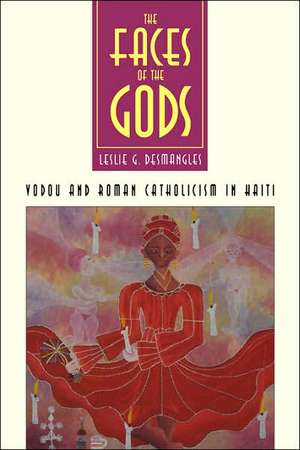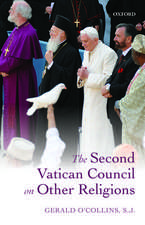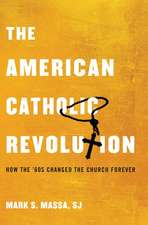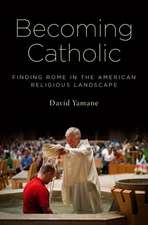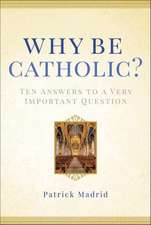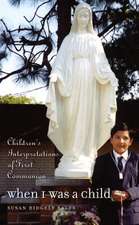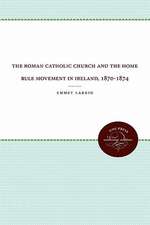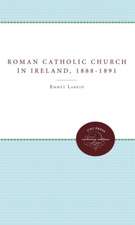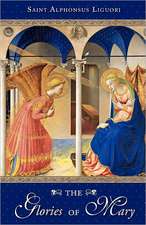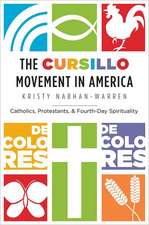Faces of the Gods: Society
Autor Leslie G. Desmanglesen Limba Engleză Paperback – 30 noi 1992
Preț: 337.07 lei
Nou
Puncte Express: 506
Preț estimativ în valută:
64.50€ • 67.51$ • 53.68£
64.50€ • 67.51$ • 53.68£
Carte tipărită la comandă
Livrare economică 01-15 aprilie
Preluare comenzi: 021 569.72.76
Specificații
ISBN-13: 9780807843932
ISBN-10: 0807843938
Pagini: 240
Dimensiuni: 157 x 234 x 15 mm
Greutate: 0.39 kg
Ediția:New.
Editura: University of North Carolina Press
Seria Society
ISBN-10: 0807843938
Pagini: 240
Dimensiuni: 157 x 234 x 15 mm
Greutate: 0.39 kg
Ediția:New.
Editura: University of North Carolina Press
Seria Society
Textul de pe ultima copertă
Vodou, the folk religion of Haiti, is a by-product of the contact between Roman Catholicism and African and Amerindian traditional religions. In this book, Leslie Desmangles analyzes the mythology and rituals of Vodou, focusing particularly on the inclusion of West African and European elements in Vodouisants' beliefs and practices. Desmangles sees Vodou not simply as a grafting of European religious traditions onto African stock, but as a true creole phenomenon, born out of the oppressive conditions of slavery and the necessary adaptation of slaves to a New World environment. Many observers have referred to such New World religions as fusions of religious practices. Desmangles instead uses the concept of symbiosis, which he defines as the juxtaposition of diverse religious traditions, coexisting without fusing. Desmangles uses Haitian history to explain this symbiosis, paying particular attention to the role of the seventeenth- and eighteenth-century maroon communities in preserving African traditions and the attempt by the Catholic, educated elite to suppress African-based "superstitions". The result is a society in which one religion, Catholicism, is visible and official; the other, Vodou, is unofficial and largely secretive. Both religions continue to play a part in Haitian politics, and Desmangles chronicles the role of Vodou and Catholicism in the fall of Jean-Claude Duvalier and the rise of Father Jean-Bertrand Aristide.
